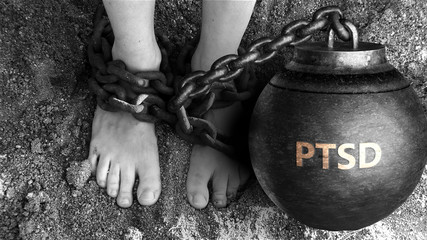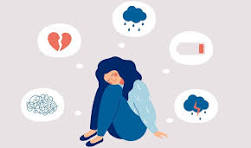
For decades, we’ve known that mental health is as important as physical health, and there are often common connections found between the two. After experiencing a traumatic event, such as a car accident, an assault, or combat, our bodies all have reactions. PTSD is a mental and emotional health disorder that often results from exposure to a traumatic event involving death, threats of death, or serious injury. It’s a condition that can affect anyone who has experienced trauma.
If you’re looking for information about stress, anxiety, and PTSD, you don’t need to be a veteran. While veterans have experience with stress and anxiety, it’s important to note that PTSD is not exclusive to this group. According to the National Center For PTSD, about 8 million adults go through PTSD during a given year.

Which Careers Are Most Vulnerable?
Research has shown that people who work in high stress jobs, like the military, first responders (e.g. police officers, firefighters), & healthcare workers, may be at an increased risk for developing PTSD. These jobs often involve exposure to traumatic events or situations that can trigger the development of PTSD. Everybody can experience a traumatic event.
However, it is important to note that not everyone who works in a high stress job will develop PTSD. Other factors, such as an individual’s coping mechanisms and support system, can also play a role in the development of the

Potential Signs Of PTSD
If you or someone you know has experienced a traumatic event, it’s important to be aware of the signs of PTSD, which may include re-experiencing the traumatic event, avoiding reminders of the event, and negative changes in thoughts and feelings. Depression, anxiety symptoms, and feelings of stress are also common in people with PTSD. Many symptoms overlap, but they can all be warning signs.
It’s important to seek help from a mental health professional for any signs of depression or anxiety. With treatment, it is possible to manage stress & anxiety symptoms to improve overall well-being.
Depression
Persistent feelings of sadness, hopelessness, or worthlessness
Loss of interest in activities you used to enjoy.
Changes in sleep and appetite
Fatigue or loss of energy
Difficulty concentrating or making decisions
Anxiety
Excessive worry or fear
Difficulty sleeping
Physical symptoms such as racing heartbeat, shortness of breath, or trembling.
Difficulty concentrating
Avoiding situations or activities that trigger anxiety.
Stress
Constant feeling of being overwhelmed or unable to cope.
Difficulty sleeping
Irritability or anger
Changes in appetite
Difficulty concentrating
At BHPS, we combine treatment of depression, anxiety and stress when treating PTSD. This often result in high yield success.
Call us today and let’s review options that will benefit you the most.

At BHPS, we thrive to restore our patients lost hope. We dedicate our services to uncovering and healing the unseen. We help our patients overcome mental health and medical health challenges.
©Copyright 2024. All Rights Reserved. Rometheme